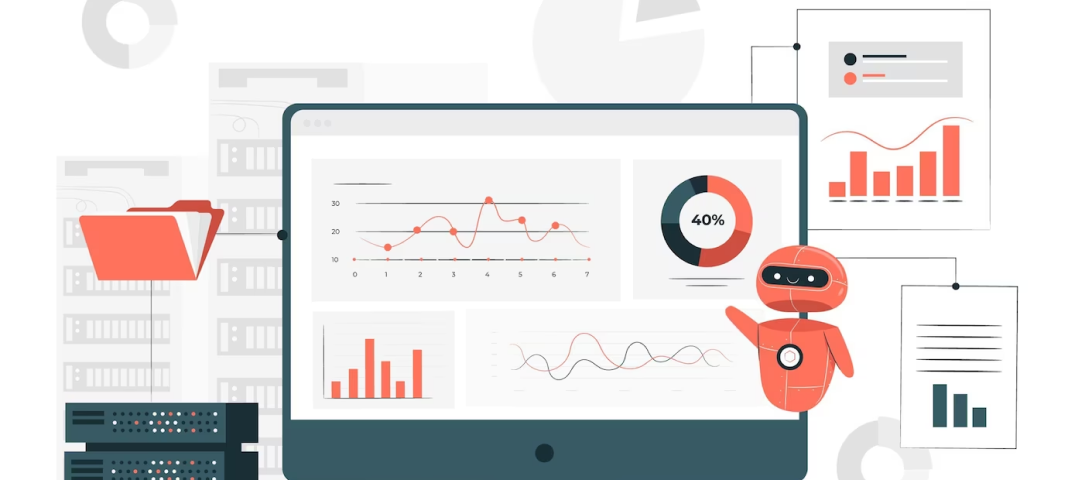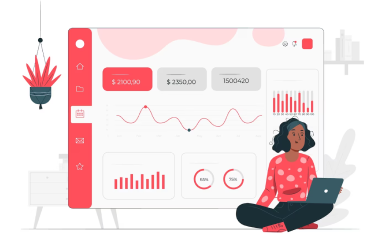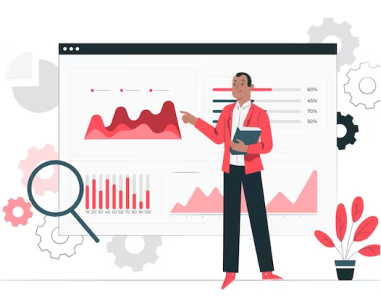Blogs
Understanding the Significance of Dashboards: How They Help You Make Informed Decisions

Author
Date
Category
Follow us
Dashboards And Its Role In Decision Making
In today's data-driven world, making informed decisions is a paramount requirement for individuals and organizations alike. Dashboards have emerged as indispensable tools in this pursuit, providing a visual representation of critical data and key performance indicators (KPIs) that enable users to quickly grasp complex information. These interactive, real-time displays offer a brief overview of business processes, helping decision-makers stay on top of their operations.
"In the age of data, dashboards are the compass that guides us through the sea of information, helping us make informed decisions with clarity and precision."
The Benefits of Dashboards
One of the primary benefits of dashboards is their ability to centralize data from various sources into a single, cohesive view. Whether you are monitoring website traffic, sales figures, or operational metrics, dashboards can fuse data streams and present them in a comprehensible manner. This consolidation eliminates the need to sift through disparate datasets, saving time and reducing the risk of overlooking essential information. Moreover, dashboards often allow users to customize their views, tailoring them to their specific needs and preferences. This level of personalization ensures that decision-makers can focus on the most relevant data points, enhancing their ability to make effective choices.
Another benefit of dashboards is their role in fostering data-driven decision-making. By providing real-time updates and visual representations of KPIs, dashboards empower users to spot trends, identify outliers, and make proactive adjustments to their strategies. For instance, marketing teams can track the performance of various advertising campaigns, analyze metrics such as click-through rates and conversion rates, and swiftly reallocate resources to maximize ROI. Similarly, in project management, dashboards help project managers monitor progress, identify bottlenecks, and allocate the resources efficiently to ensure timely project delivery.



Additional Advantages
Furthermore, dashboards heighten transparency and facilitate collaboration within organizations. By making data accessible to relevant stakeholders, teams can align their efforts toward common goals. Executives can share dashboards with department heads, and team members can collaborate on the shared dashboards to build a culture of accountability and teamwork.
Hence, dashboards play a vital role in modern decision-making processes by providing a consolidated, customizable, and real-time view of critical data. Their ability to streamline information, promote data-driven decisions, and foster collaboration makes them indispensable tools for organizations seeking to stay competitive in today's data-centric landscape. As businesses continue to amass vast amounts of data, the significance of data visualization tools and dashboards in aiding users to make informed decisions is set to grow even further in the future.




